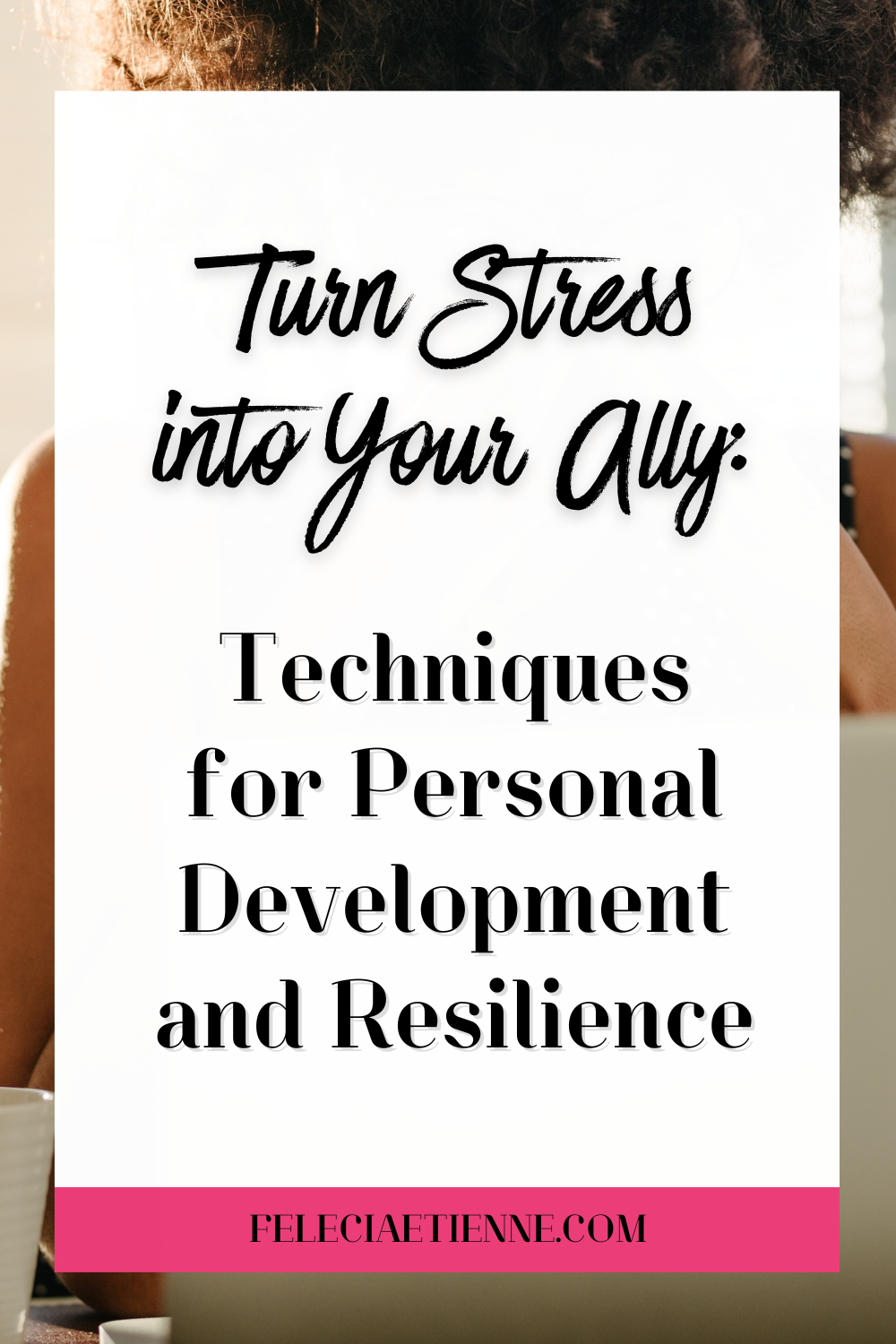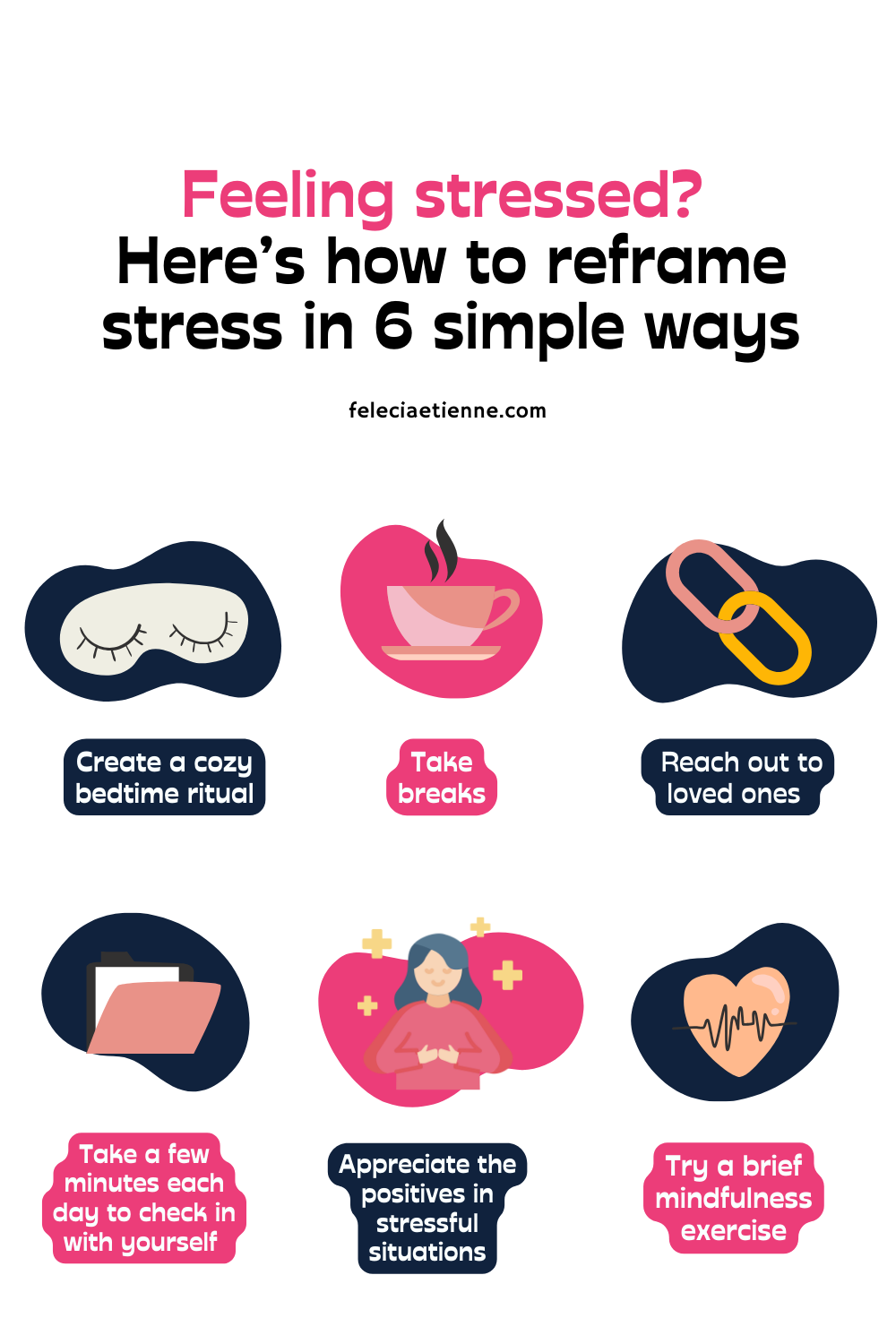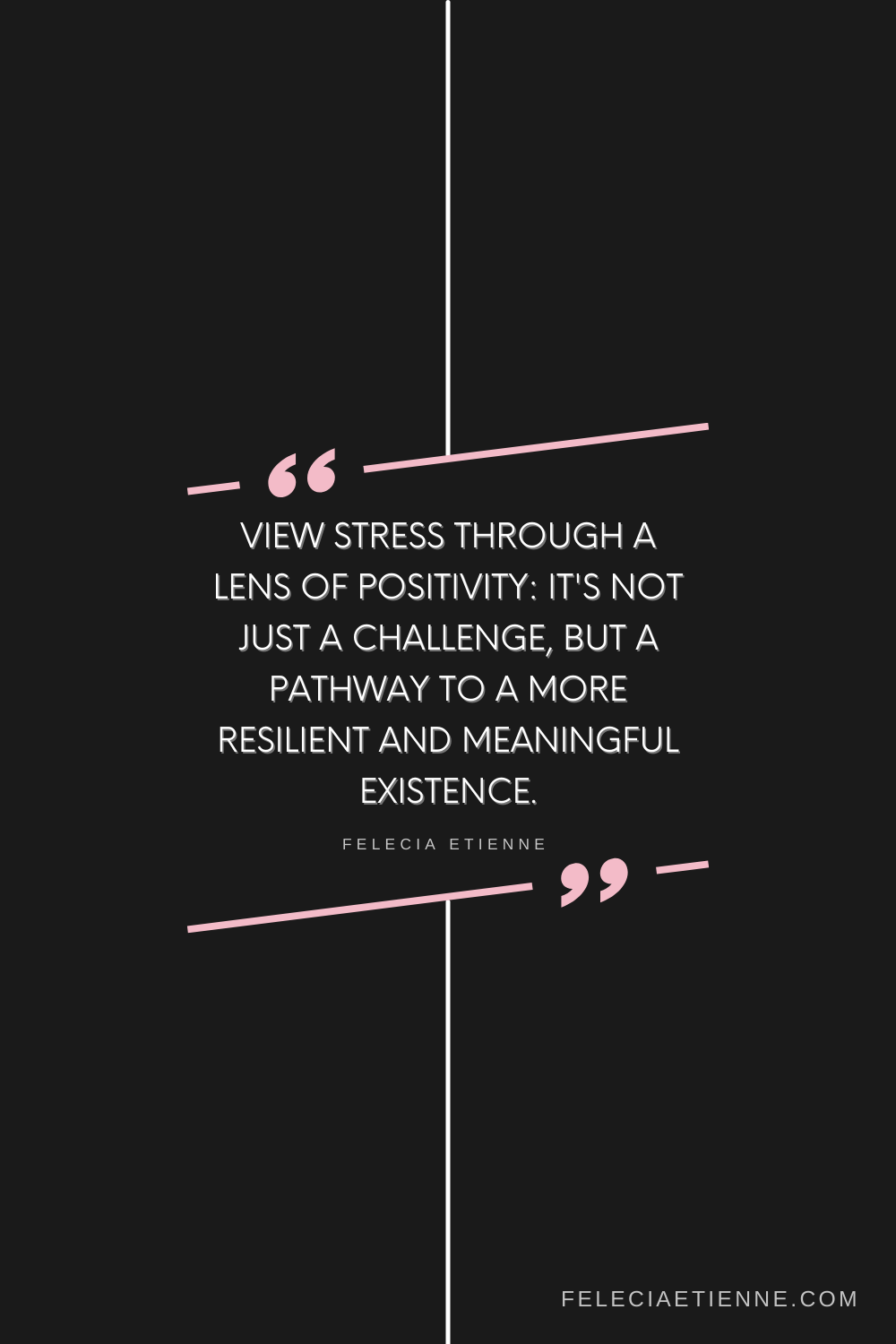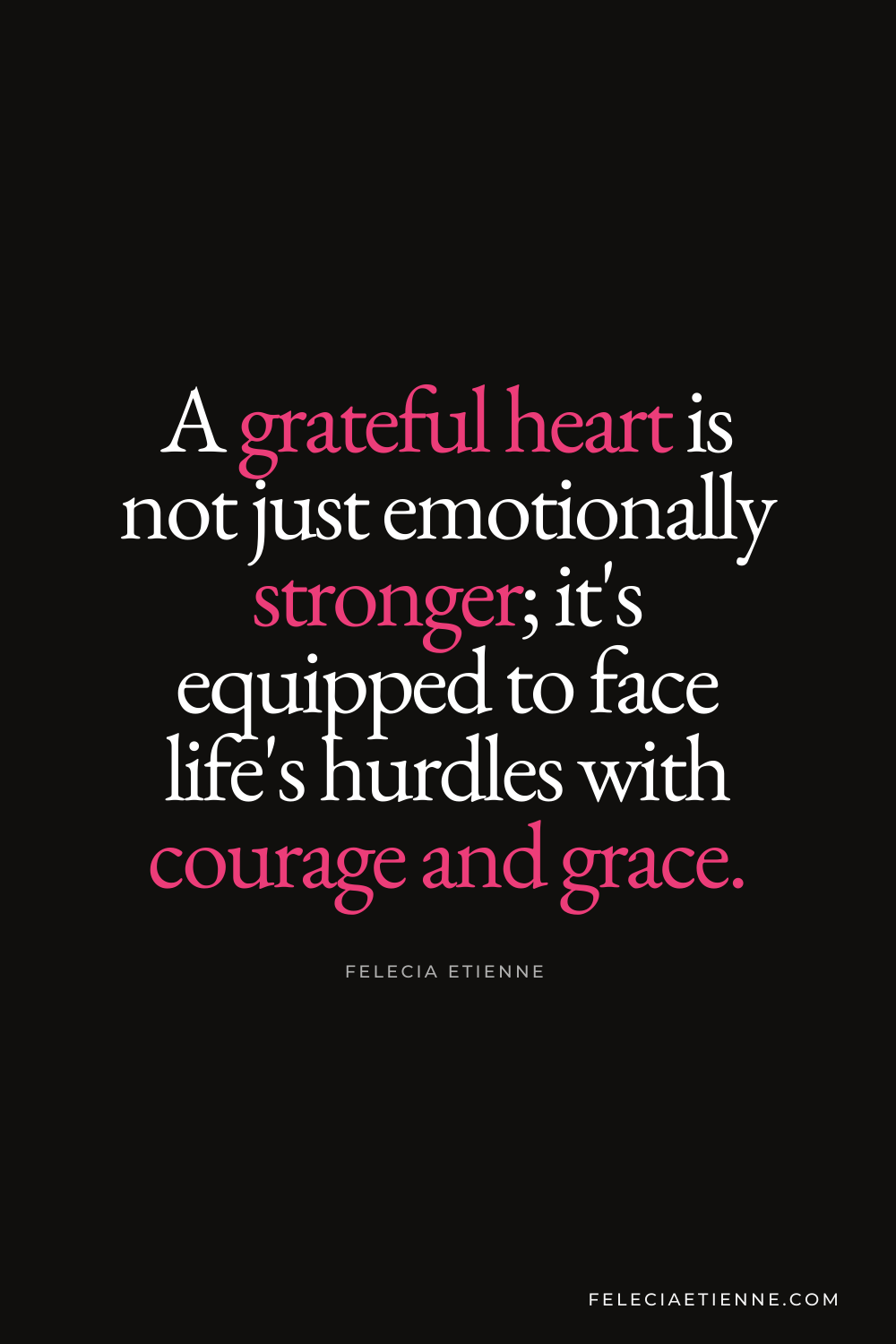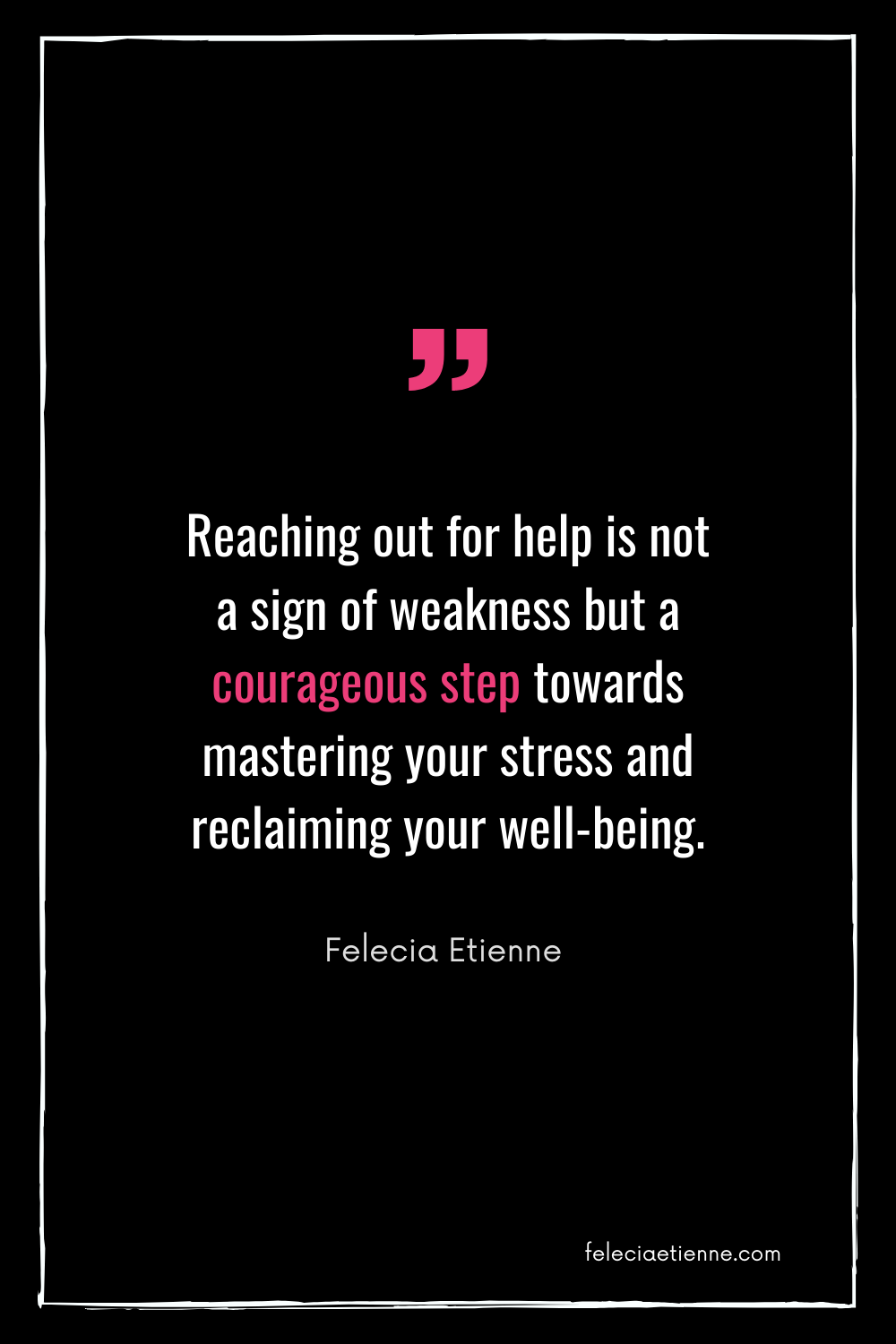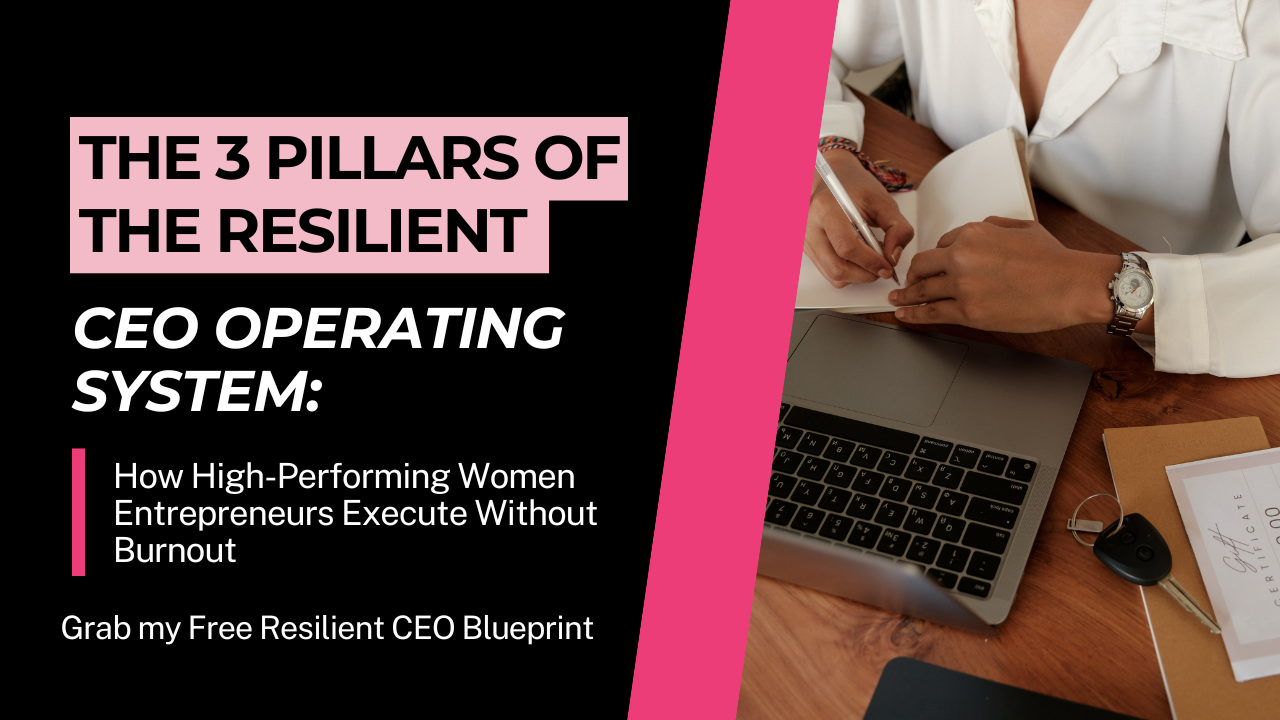Turn Stress into Your Ally: Techniques for Personal Development and Resilience
Ever felt like stress is just an endless, unwelcome guest in your life? You're not alone. It hits us all, thanks to work, personal hiccups, or those totally out-of-the-blue life curveballs, leaving us tangled in a web of yucky feelings and thoughts. But wait, what if you flipped the script on stress? Imagine seeing it not as the enemy but as a secret ally in your journey toward growth and resilience.
Sounds a bit out there, right? Yet, it's true. Stress, rather than being something to dodge or battle, can actually spark incredible personal transformation. Science backs this up, showing that by reimagining stress as a growth opportunity, you unlock a treasure trove of self-discovery, resilience building, and, ultimately, personal expansion.
Ready to explore how to flip the script on stress and turn it from an enemy into a buddy? We're about to explore how embracing the beast can open your eyes to new possibilities, boosting both your mental and physical well-being. By converting challenges into launchpads for development, you can transform our entire approach to life's pressures.
Alright, take a deep breath, and let's go on a journey to discover the hidden perks of stress, making it a source of strength and enrichment.
Reframing Stress: Your Personal Growth Trainer
“Think of stress as your personal gym for the soul - it’s not blocking your path, it’s just beefing up your resilience and pushing your transformation into turbo mode!”
First things first, let's talk about mindset. Often, when we think of stress, we view it as something to avoid or eliminate. By shifting your perspective and viewing stress as a catalyst for personal development, you can welcome it as an integral aspect of life that fosters growth and resilience. Research from the Journal of Personality and Social Psychology suggests that this shift in perspective can lead to greater resilience and life satisfaction.
The Power of a Growth Mindset
Carol Dweck and Martin Seligman, two trailblazing psychologists, champion the game-changing concept of a growth mindset. It's all about viewing life through a lens of learning and evolving instead of being shackled by the idea of fixed talents. Think of stress as a chance to grow and learn. It's like how top athletes use tough workouts to get stronger. We can see mental and emotional stress as a way to beef up your resilience. If you shift how you view stress, you can turn it into a solid ally for personal growth.
Level up and Thrive Action Tip:
Reflect on past setbacks and identify lessons learned. Write them down, and use them as a guide for future challenges. Embrace the idea of stress as a trainer, helping you grow and become more resilient.
Recognizing Stress Signs: Listening to Your Body
Now that you understand the importance of reframing your mindset let's take a moment to discuss the physical and emotional signs of stress. Stress can show up in your life in many ways, including physical symptoms like headaches, stomachaches, muscle tension, trouble sleeping, and an increase in heart rate and blood pressure. These are signs that your body is switching into "fight or flight" mode, a natural response to perceived threats or challenges.
Emotional and Behavioral Indicators of Stress
On an emotional and behavioral level, you might notice irritability, changes in your appetite, difficulty concentrating, and anxiety. Paying attention to these signs is key—it's your body's way of waving a red flag when stress mounts and you're due for a well-deserved break or some self-care love.
Personalized Coping Mechanisms for Stress
Understanding how stress affects you personally is key to developing personalized coping mechanisms. For some, journaling may offer relief, while others might find comfort in talking to a trusted friend or engaging in mindfulness techniques. By paying attention to your body's signals and understanding your unique responses to stress, you can proactively manage its impact on your well-being, ensuring you maintain healthy harmony both physically and emotionally.
Level up and Thrive Action Tip:
Take a few minutes each day to check in with yourself and identify any physical, emotional, or behavioral signs of stress. Leverage this info to de-develop coping strategies that truly resonate with you. Dive in and tackle them head-on before they snowball into something overwhelming.
RELATED ARTICLE: Escaping the Overwhelm and Stress Vortex: 11 Steps to Regain Control
Embracing the Challenge Mindset: Turning Stressors into Opportunities
We've established that stress can be a powerful catalyst for growth, and we've learned how to recognize its signs and take care of ourselves when it becomes overwhelming. Now, let's dive deeper into how you can really adopt a challenging mindset to turn your stressors into chances for personal and professional growth.
The Power of Perception
Embracing stress as a beneficial force, research from both Harvard Business Review and the University of Wisconsin-Madison supports this approach, showing that seeing stress as helpful can not only reduce anxiety but also boost confidence in high-stress situations. This perspective encourages us to view challenges not as insurmountable obstacles or burdens but as chances to develop new skills, gain knowledge, and bolster our resilience.
Harnessing Inner Strength
When faced with stress, our first instinct might be to avoid or escape it. However, by accepting the challenge and reframing it as an opportunity for growth, you can harness your inner strength and resilience. This involves shifting your focus from the stressor itself to how you can learn and grow from the experience. Challenge yourself with questions like, "What valuable lessons can I glean from this?" or "How can this experience forge a stronger me?" By setting achievable goals, breaking down challenges into smaller, manageable steps, and seeking support when needed, you can approach stress as a motivator for personal development and resilience building.
Reframing Stress for Self-Improvement
By viewing stressors as achievable obstacles that push you to grow, you can transform your approach to stressful situations. This mindset shift allows you to reframe stress as a positive force in your life, not something to fear, but as a catalyst for growth and self-improvement.
Level up and Thrive Action Tip:
Next time you encounter a stressful situation, take a deep, cleansing breath and reframe it as an opportunity for growth. Ask yourself questions like: "What can I learn from this?" or "How can I use this experience to become stronger and more resilient?"
Setting Boundaries: Protecting Your Well-being
“Resilience is not about being able to handle everything; it’s about knowing when to ask for help and setting boundaries to protect your well-being.”
As you navigate life's challenges, it's essential to recognize that we cannot do it all alone. Building resilience involves embracing stress and turning challenges into opportunities, and it's equally crucial to set boundaries and prioritize our well-being. The American Psychological Association emphasizes the importance of these boundaries to prevent burnout and maintain mental health.
Practical Steps to Manage Stress and Set Boundaries
Setting boundaries means establishing limits on what we can realistically handle physically, emotionally, and mentally. This might involve saying "no" to responsibilities or commitments that are overwhelming or seeking support from friends, family, or professionals during challenging times. It's vital to recognize when stress becomes too much and take effective steps to manage it. Consider taking breaks, reaching out to loved ones, or even seeking professional help if necessary.
Self-Care: The Path to Long-Term Stress Management
Boundaries also include taking time for self-care, which can look different for everyone. It could be practicing mindfulness, engaging in a hobby, or simply taking a break from work and responsibilities. Setting healthy boundaries isn't selfish—it's essential for long-term stress management. Learn to say no to excessive work demands or social commitments that drain your energy.
The Power of Prioritizing Self-Care and Avoiding Burnout
Putting yourself first and drawing the line isn't just good for you; it's a burnout blocker. Ignoring what you need and stretching yourself too thin? That's a one-way ticket to stress city, and trust me, it's bad for both your body and soul. When you make self-care and boundary-setting your BFFs, you're not just surviving; you're thriving. You're building up that inner strength, ready to face life's hurdles with a big, fat smile.
Level up and Thrive Action Tip:
Take a moment to assess your current boundaries and prioritize self-care. Identify any areas where you may need to set clearer boundaries and make a plan to protect your well-being.
Finding Purpose in Stress: Discovering Meaningful Growth
“When you embrace stress as a chance for personal growth, you unlock your full potential and discover your purpose.”
Understanding Stress as a Growth Catalyst
We often view stress as an enemy, something to be avoided at all costs. However, when you shift your perspective, you can see that stress is a natural and necessary part of our growth journey. By embracing stress as an opportunity for personal development, you can find meaning in the challenges you face and discover your purpose along the way.
The Research on Stress and Health
Research from Stanford University shows that when individuals view stress as harmful, it can lead to negative health outcomes. In contrast, those who embrace stress as a chance for growth have better mental and physical health. This mindset shift allows you to see stress not as a burden but as a necessary part of your journey toward self-discovery and fulfillment.
Shifting Focus: From External Success to Internal Growth
Embracing stress as a path to purpose involves shifting your focus from external achievements to internal growth. Instead of constantly striving for success or perfection, you can use stress as an opportunity to learn more about yourself and your capabilities. By embracing challenges, you push yourself out of your comfort zone and discover new strengths and passions.
Finding Joy in the Journey
Moreover, when you find purpose in stress, you begin to cherish the journey, not just the destination. It's about discovering joy and fulfillment in navigating challenges and evolving as a person.
Level up and Thrive Action Tip:
Next time stress knocks on your door, flip the script and see it as an opportunity for growth and self-discovery. Pay attention to the insights you gain about yourself on this journey and throw a little celebration for your progress, not just the final outcome.
Embracing Community: Establishing Connections for Resilience and Stress Relief
“Connecting with others not only helps you weather life’s challenges but also adds richness and joy to your life.”
The Power of Community in Building Resilience
You're not meant to face stress alone. Building resilience means embracing the support and connections of your community. Whether it's family, friends, colleagues, or professionals, having a supportive network can help you navigate life's challenges with strength and perseverance.
The Science of Social Support
Research from the American Psychological Association reveals that a solid social support system can really help you deal with stress and boost your overall well-being. Having folks around to offer emotional support, practical advice, or just lend an ear makes you feel less isolated and better prepared to tackle life's challenges.
Connecting and Sharing
Connecting with others allows you to share your burdens and learn from different perspectives. By reaching out and building relationships, you can gain valuable insights and support that help you build resilience. Additionally, being part of a community gives you a sense of belonging and purpose, which contributes to your well-being.
The Importance of Community Connections
It's easy to get caught up in individualism and forget the importance of community. However, making an effort to establish connections and build a supportive network can really enhance your ability to handle stress and thrive in the face of challenges.
Unlock Your Community Superpower
It's all too common to fall into the trap of solo navigation, overlooking the true essence of togetherness. But let me share a little secret: taking the time to weave meaningful connections and foster a network of support isn't just nice to have—it can change the game. Through my own journey, I've learned that embracing community is like unlocking a superpower. It not only arms you with resilience against stress but also propels you to thrive amidst adversity.
Choose Connection Over Isolation
So, if you're standing at the crossroads of isolation and connection, choose to reach out. Build bridges, not walls. Remember, you're stronger together. Let's not just exist but thrive, supported by the strength of our collective spirit.
Level up and Thrive Action Tip:
Take time to reach out and connect with others, whether it's friends, family, or joining a group or community. Building relationships not only adds richness to our lives but also helps us build resilience for whatever life throws our way. So, don't be afraid to reach out and embrace the support of those around you.
Cultivating Gratitude: Appreciating the Positives in Stressful Situations
“When you shift your focus to what you are thankful for, stress loses its power over you.”
Harnessing the Power of Gratitude in Stressful Times
In times of stress, finding the silver linings can seem daunting. Yet, cultivating gratitude is like harnessing a superpower that transforms our perspective, enabling us to see the positives in even the most challenging situations. By acknowledging and appreciating what we have, we not only find peace and purpose amidst stress but also enrich our journey with optimism.
The Science Behind Gratitude
Research from Harvard Medical School, alongside fascinating studies by the University of California, Davis, highlights the numerous benefits of gratitude for our mental and emotional well-being. It's proven to reduce stress levels, improve sleep quality, and increase overall happiness. Practicing gratitude trains your brain to focus on the positive, lighting up your mindset even during difficult times.
Building Resilience Through Gratitude
Moreover, gratitude fosters resilience by reframing challenges as opportunities for growth and learning. It encourages us to view setbacks as necessary steps toward our goals, transforming our approach to life's hurdles. Cultivating gratitude doesn't mean ignoring stress. It's about accepting our circumstances while choosing to focus on the good, revealing the hidden sparkles in our day.
Simple Ways to Practice Gratitude Daily
Infusing gratitude into your daily routines can be simple, like jotting down what you're thankful for or expressing gratitude toward others. By making this a habit, you rewire your brains to see the world through a more positive lens, significantly improving your ability to handle stress. Who knew saying "thank you" could be such a game-changer in boosting your mood and resilience?
Level up and Thrive Action Tip:
Take time each day to practice gratitude, whether it's through writing in a gratitude journal or verbally expressing thanks to others. Even on the most stressful days, there is always something to be grateful for. So, make a conscious effort to focus on the positives and watch how it can transform your perspective and outlook on life.
RELATED ARTICLE: The Power of Delayed Gratification: Unleashing Your Productivity Potential with the 10-Minute Rule
Seeking Support: Building Strong Relationships for Resilience
“When you open up to others, you also open yourself up to support and connection.”
Embracing Vulnerability: The Key to Building Resilience
As humans, we naturally desire self-sufficiency and independence. Yet, seeking support when you're stressed is a powerful way to build resilience. Though it may seem counterintuitive, showing vulnerability and reaching out for help can actually make you stronger.
The Power of Social Connections in Stress Management
Another crucial aspect of managing stress is seeking support from your loved ones. Studies show that strong social connections can act as a powerful buffer against stress, enhancing our resilience and well-being. Connecting with others triggers the release of oxytocin, a hormone that promotes calmness and helps us cope with stress more effectively.
Opening Up: A Gateway to Support and Connection
When you open up to others, you not only allow yourself to be seen and accepted but also invite support and connection into your life. Vulnerability fosters empathy and understanding, creating deeper relationships that provide a strong foundation of support when facing challenges. Chatting with a trusted friend, family member, or colleague about what's stressing you out can really help you work through it, offering emotional relief and bringing you closer together. Plus, knowing there's someone there to back us up in tough times can be super comforting and remind you that you're never alone.
The Risks of Isolation and the Importance of Strong Relationships
On the other hand, isolation can amplify stress and make it harder to cope with. Therefore, building and maintaining strong relationships is essential for managing stress effectively. Remember, asking for help isn't a weakness; it's actually pretty brave. By reaching out and connecting with others, you break the barriers of isolation and build a network that can help you bounce back from stress. Moreover, seeking support also means being willing to offer support to others in return. By being there for those around you during their times of need, you not only strengthen your relationships but also cultivate a sense of purpose and belonging.
Level up and Thrive Action Tip:
Hit up a trusted pal, family member, or coach and spill about what's bugging you. Make sure to catch up with your favorite people often, even if it's just a quick call or video chat. Remember, you're not flying solo here. Getting support is key to dealing with stress and getting stronger. So, don't be shy to reach out when you need to!
Practicing Mindfulness: Embracing the Present Moment to Overcome Stress
“When you bring your attention to the present moment, you give yourself a break from overthinking and stress.”
Harnessing the Power of Mindfulness to Combat Stress
It's easy to get caught up in the chaos and constantly worry about the future or dwell on the past. However, this can significantly contribute to our stress levels. Practicing mindfulness helps you break free from the cycle of overthinking and focus on the present moment, allowing us to manage stress more effectively.
What is Mindfulness?
Mindfulness is about you intentionally paying attention to the present moment without judgment. It's about slowing down and becoming fully aware of your thoughts, emotions, and surroundings. By cultivating a nonjudgmental attitude towards your experiences, you can observe them with curiosity and compassion instead of getting caught up in them. This helps create a mental space that allows you to respond to stressors more effectively and make wiser decisions.
The Science Behind Mindfulness and Stress Reduction
Studies reveal that practicing mindfulness regularly can lower your cortisol levels—the stress hormone—and boost activity in parts of your brain linked to attention and emotional regulation. By focusing on the present moment, you can let go of unhelpful thoughts and concentrate on what's within your control, reducing your feelings of stress and overwhelm.
Incorporating Mindfulness into Your Daily Routine
Adding a bit of mindfulness to your daily routine is pretty straightforward – just take a few moments to focus on your breathing, tune into what your body's feeling, or even jot down something you're grateful for. Making this a regular thing can really help us keep our heads in the game and deal with stress a whole lot better.
The Benefits of Mindfulness on Well-being
Mindfulness not only reduces stress by lowering cortisol levels but also bolsters emotional resilience, improving our overall well-being. Simple mindfulness exercises such as meditation, deep breathing, or even a brief pause to observe our surroundings can profoundly impact our stress management. By dedicating a few minutes each day to these practices, you can navigate life's stresses with enhanced clarity, composure, and a rejuvenated sense of well-being.
Level up and Thrive Action Tip:
Try incorporating a brief mindfulness exercise into your daily routine. It can be as simple as taking a few deep breaths, practicing gratitude, or spending a few minutes in quiet reflection. Experiment with different techniques and find what works best for you.
RELATED ARTICLE: Control Your Mind - Fear it or Control it... You Get in Life What You Create
Learning from Failure: Turning Setbacks into Stepping Stones
“Failure isn’t the end of the road to success; it’s part of the journey, paving the way towards it.”
Embracing Failure: The Path to Resilience
Facing failure can be incredibly stressful and demotivating, yet it's essential to recognize that we will experience failures and setbacks in life. However, learning to embrace and learn from our failures, as advocated by psychologists Carol Dweck and Martin Seligman, can help us build resilience and grow in the face of adversity with a growth mindset. This perspective views failures as opportunities for learning and growth, transforming our approach to challenges and enhancing our adaptability.
The Power of Perspective
Nobody enjoys failing, but remembering that failure is a natural part of life and an opportunity for growth can shift our perspective from defeat to determination. Instead of dwelling on our mistakes, we can see them as valuable lessons that propel us forward, embracing challenges as chances to develop resilience. Every successful person has hit a bump or two along the way, but what really makes them stand out is how they deal with it—seeing those setbacks as awesome lessons that help us grow and get better.
Turning Failures into Stepping Stones
The first step in turning failures into stepping stones is to accept and acknowledge them without self-judgment, recognizing that failing at one thing doesn't make us failures as individuals. It's normal to feel disappointed when things don't go according to plan, but by reframing failure as an opportunity for growth, we can ask yourself, "What can I learn from this experience? How can it help me improve?" This mindset motivates you to keep moving forward, seeing failure as a critical step towards success.
Building Resilience Through Adversity
Moreover, embracing stress and seeking support are crucial, as is remembering our biggest challenges often lead to our most significant breakthroughs. Reflecting on past failures that have eventually led to success and identifying the lessons learned can inspire us to push through stressful times, knowing they, too, will contribute to our overall growth. By embracing failure as part of our journey, we empower ourselves to overcome stress and continue striving toward our purpose in life, applying the resilience and adaptability we've developed.
A Stepping Stone to Success
So, the next time you encounter a setback, remember it's just another stepping stone on your path to success—a chance to grow stronger and more determined, making you more resilient and prepared for future challenges.
Level up and Thrive Action Tip:
Next time you hit a bump or mess up, take a moment to think about what went sideways and what you can pick up from it. Practice self-compassion and remind yourself that failure is not a reflection of your worth as an individual. Use the experience as motivation to keep moving forward and learning from your mistakes.
Prioritizing Sleep: Rest for Optimal Performance
“A well-rested mind is a fortress of resilience, clarity, and positivity, transforming stress into a manageable challenge. Prioritize sleep, for it is the foundation upon which our emotional strength is built.”
The Essential Role of Sleep in Enhancing Productivity and Health
Putting productivity first might tempt you to skimp on sleep, but beware, the cost to your physical and mental health can be steep. Think of sleep not as a luxury but as an essential fuel that powers your body and mind. It's the time when your brain sorts and stores new info, your cells repair themselves, and your system sweeps out toxins. It's your ultimate stress-buster and well-being booster. Don't shortchange yourself on sleep—it's the foundation of your health and success.
Improving Sleep Quality for Better Performance
Getting good quality sleep is super important, and that means sticking to a solid bedtime routine. Cut down on screen time before bed, skip the late-night coffee or drinks, and make sure your sleeping space is super cozy. Taking care of your sleep hygiene can make all the difference in how well-rested and ready to take on the day you feel.
The Impact of Sleep on Health and Stress Management
Prioritizing sleep is crucial for overall health, helping to manage stress and prevent issues like obesity and diabetes. Adequate sleep boosts physical and mental resilience, enhances cognitive functions, and helps cope with stress by reducing cortisol levels. Establishing a consistent sleep routine and a restful environment is essential for quality rest, making it a fundamental part of self-care and improving personal and professional performance. Let's prioritize sleep for better well-being and stress management.
Level up and Thrive Action Tip:
Create a cozy bedtime ritual and target that sweet spot of 7-9 hours of restorative sleep each night. Cut down on screen time as you wind down and embrace relaxation methods such as deep breathing or meditation to soothe your mind. Elevate sleep to a key pillar of your self-care routine and witness the remarkable boost it gives to your resilience and performance across all facets of life.
Conclusion: Embrace Stress for Personal Evolution
“View stress through a lens of positivity: it’s not just a challenge, but a pathway to a more resilient and meaningful existence.”
In conclusion, stress is not something to be feared or avoided, but rather embraced and used as a catalyst for personal growth and resilience. By shifting our perspective on stress and implementing self-care practices, we can harness its power and transform it into opportunities for evolution. Don't forget to put yourself first, make rest and sleep a priority, and tackle every challenge with a can-do attitude! Each experience is a chance to learn, adapt, and become stronger. So let's make a conscious decision to embrace stress as an essential part of our journey towards becoming the best version of ourselves. And if you're ready to take your personal growth journey to the next level, book a complimentary High-Performance Strategy Session with me. Let's work together towards embracing stress and thriving in life! Thank you for reading, and keep embracing growth with every step you take. See you soon! 💫
“Reaching out for help is not a sign of weakness, but a courageous step towards mastering your stress and reclaiming your well-being.”
“Mindfulness is not just a momentary pause; it’s a gateway to resilience, melting away anxiety.”
“Our brains thrive on challenges! Every obstacle is an opportunity for our creativity to soar and our problem-solving abilities to shine.”
“Take a step back and recharge. It’s in those quiet moments of pause that your brightest ideas and solutions come to life.”
“To prioritize sleep is to prioritize well-being. It’s about discipline, setting boundaries, and recognizing sleep as a non-negotiable aspect of high-performance.”
Click the freebie below to grab your free productivity powerpack:
Get Your Free High-Performance Assessment here!
Sign up to receive your Free Level-Up & Thrive Assessment.


